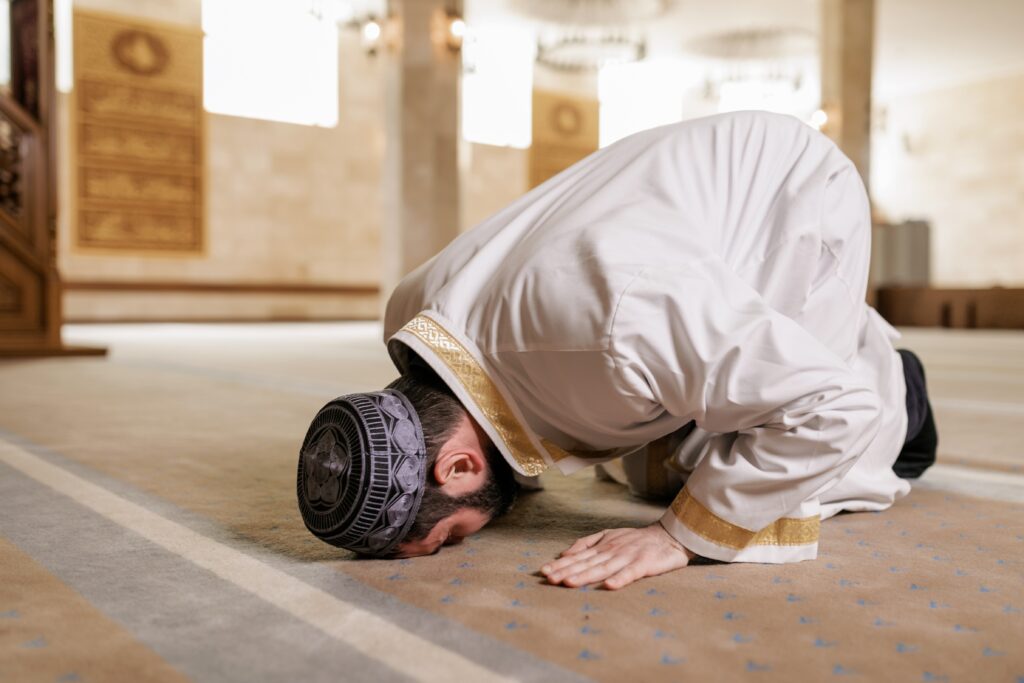TUESDAY, NOVEMBER 26, 2013 • 12:00 AM
It is Thanksgiving week in the USA and thus we are all thinking about what it means to be thankful. As families prepare feasts to share, and malls prepare sales to sell to mobs of people who come storming in on Friday, I observe and think. What does it really mean to be a thankful person?
Shukr (thankfulness) is a spiritual state to be sought. Allah (swt) says, “Have taqwa of God that you may be grateful.” (3:125) Clarifying that deep thankfulness is not achieved without a measure of God consciousness.
He says, “And [remember] when your Lord proclaimed, ‘If you are grateful, I will surely increase you [in favor]; but if you deny, indeed, My punishment is severe’.
We as human beings have a tendency to forget our blessings, and we have a tendency to focus on what we do not have. We recognize it when it is missing, and quickly forget again when it reappears. So our health is sorely missed in the middle of a flu, and easily forgotten in the middle of a lonely day when all we can remember is how people don’t treat us right.
Basically, a great percentage of our problems could be eradicated if we learned to focus on what we have instead of what we don’t have. If we were people of shukr, we would be people of fewer problems.
Shukr is a state to be worked for and it includes three pillars: knowledge, state of being, and hard work.
Knowledge is the recognition of (knowing) blessings. We live most of our life superfluous to the blessings we live with. Some even begin to believe that their blessings are their ‘rights’. We must remember that all of our blessings are privileges and gifts. The refrigerator with a carton of milk that is replenished whenever it empties, the computer, the car, the shoes, the spoons, the cereal, the sheets, the pillows, the books, the toothpaste on and on and on – all privileges and not rights. Yet we become crabby and sullen if we don’t get our daily dose of these blessings. The beginning of thankfulness is seeing each and every one of these things as great blessings from God. And appreciating every one. Can you go to the bathroom without a catheter? Can you see the phone in your hand? Can you raise your arms above your head? Can you leave your house without fear of being shot? Can you turn off the lights, close your eyes and listen to quiet (as opposed to a buzzing or ringing in your ear)? Then you are living in great and powerful blessings. Take nothing for granted.
State of being is the feeling in the heart that is a result of knowing one’s blessings. We must work on developing this state of thankfulness. Fight off bitterness and turn away from self pity. We must be thankful to the One who blessed us before being thankful for the blessing itself. Joy in Him is before joy in anything else.
Hard work is the using of every limb in the obedience of Allah (swt). Because who thanks with her tongue is not using that same tongue for ghība, namīma, or to hurt any of the creation. Thankfulness is using the tongue for praise, and thanking, and remembrance of all blessings. Those that thank with their tongue use it for the guidance of others as well, Allah (swt) says “…as for the blessings of your Lord, (thou shalt) speak” (al-Dhuha). The thankfulness of the eyes is to not see the imperfections of others, to not look at haram, and to use them in that which pleases Allah – like being awake at night, and serving His umma, etc.. Each limb has deeds to do so that it might join the chorus of thankfulness.
On Thursday there will be many, many people in the USA thanking God for food and family. I will set three tables with three turkeys and around those tables will sit thirty family members. Together we will join the chorus of thankfulness, and I will observe and watch and contemplate what it means to be a thankful person.



